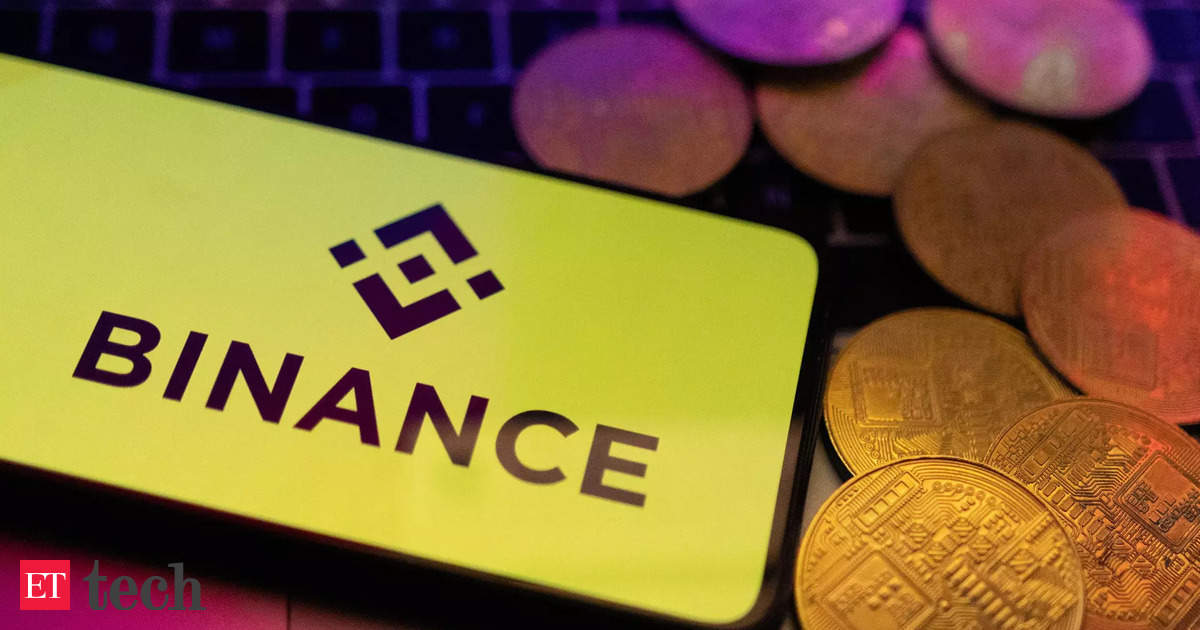Binance, the largest cryptocurrency exchange globally, faced a government ban in January but is now set to re-enter the Indian market by paying a fine of approximately $2 million, according to sources familiar with the situation as reported by ET.
 ETtech
ETtech
The exchange will return under the registration of the Financial Intelligence Unit (FIU) under the finance ministry’s purview, ensuring compliance with all relevant laws, including the Prevention of Money Laundering Act (PMLA) and the virtual digital assets (VDA) taxation framework. One source mentioned that Binance had previously been disregarding these regulations.
Explore Advanced Tech Courses for Skill Enhancement
Check out the following high-value skill courses to enhance your expertise:
- Indian School of Business (ISB) Professional Certificate in Product Management
- IIM Lucknow Executive Programme in FinTech, Banking & Applied Risk Management
- Indian School of Business (ISB) Product Management
Authorities familiar with the situation emphasized India’s firm stance requiring all global cryptocurrency exchanges to abide by the country’s laws to operate within its borders.
An individual cited expressed disappointment that Binance took over two years to acknowledge the necessity of compliance, highlighting that no special treatment can be granted to any global entity at the expense of the country’s financial system.
However, the exact amount of the $2 million penalty and its calculation were not officially confirmed. Binance had not responded to ET’s inquiries by the time of publication on Wednesday.
Stay Updated with Relevant News Stories
Binance stands out as the leading cryptocurrency exchange worldwide in terms of asset holdings and daily trading volume. Recent data from CoinMarketCap shows a trading volume of $22 billion in the past 24 hours, accounting for a significant portion of the global volume. In January, Binance, along with eight other offshore crypto platforms, faced a ban in India due to non-compliance with FIU and PMLA guidelines.
Tax Compliance Issues
Prior to the ban, Binance facilitated nearly 90% of the estimated $4 billion crypto assets held by Indian investors. Its market dominance was largely due to non-compliance with tax regulations, enabling traders to operate without adhering to the 1% tax deduction at source (TDS) mandated for registered exchanges. The re-entry of Binance is seen as a positive development that will enhance the maturity of the crypto industry in India, attracting global investments. However, it is crucial to note that all exchanges must now operate on a level playing field without tax evasion, impacting user engagement and retention strategies.
Following Binance’s ban, a significant number of Indian crypto investors shifted their assets to local exchanges like CoinDCX and WazirX, leading to substantial growth in inflows. Global exchanges without a registered presence in India were also causing significant tax losses amounting to approximately Rs 3,000 crore annually, according to research by the Esya Centre think tank. Industry experts highlighted Binance’s reluctance to subject its trades to scrutiny, fearing potential withdrawal of major investments.
Embracing Compliance
Binance’s decision to operate fully compliantly signifies a significant shift in approach. By agreeing to adhere to Indian regulations and participate in financial monitoring by reporting to law enforcement agencies, Binance is setting a positive precedent in the industry. This move is viewed as a significant step towards regulatory inclusivity and security in India’s cryptocurrency landscape.
Binance will be the second offshore exchange to register with the FIU in India, following Kucoin from Seychelles, which recently achieved compliance and had the ban on its website lifted. Market leaders anticipate Binance’s return to reshape market dynamics with its advanced technology and increased liquidity compared to local exchanges. Its re-entry coincides with record-breaking highs for popular cryptocurrencies like bitcoin and ethereum.
Financial regulators in countries such as the US, the UK, and Hong Kong have begun approving crypto-backed securities for traditional financial markets. Binance’s plans for the Indian market include offering localized payment solutions, establishing a dedicated team, and further investment in the country’s blockchain ecosystem.
With operations spanning over 100 regions, Binance maintains significant presence in Seychelles, Malta, Cayman Islands, and Singapore, without a specified headquarters location.


